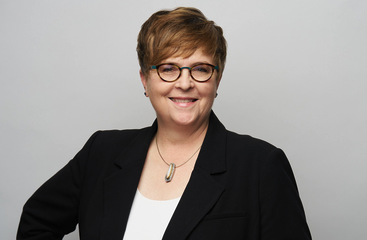$3.9M NIH Grant to Develop Community-Driven Solutions to Prevent Maternal Morbidity
November 05, 2025
The National Institute on Nursing Research has awarded a $3.9 million, five-year grant to NYU Meyers’ Audrey Lyndon, PhD, RNC, FAAN, and her co-principal investigator, UCSF’s Ifeyinwa Asiodu, PhD, RN, FAAN, to develop community-engaged approaches to preventing severe maternal morbidity.
Severe maternal morbidity—serious health complications that occur during pregnancy, childbirth, or postpartum—affects 2% of the childbearing population. These “near misses” with death are often traumatic for survivors, but many of the complications are preventable.
“My argument as to why we haven’t seen gains in maternal health complications is that the communities affected haven’t been involved in designing solutions. We have to do something different,” said Lyndon, the Vernice D. Ferguson Professor in Health Equity and Executive Vice Dean at NYU Rory Meyers College of Nursing.

With this NIH funding, Lyndon and her colleagues, in partnership with the project’s community advisory board—an established group of survivors, clinicians, and other community members focused on severe maternal morbidity and reproductive health—will first conduct in-depth interviews and surveys to better understand the experiences, causes, and long-term consequences of severe maternal morbidity among survivors and families across the country. Then, based on their findings, they will work with community members to prioritize the most urgent issues to address.
The team will then co-develop strategies to prevent severe maternal morbidity, mitigate its impact on survivors and their communities, and promote positive maternal, child, and reproductive health outcomes.
“An issue—which is not new, but was striking in our preliminary work—is that folks are still not listened to during pregnancy. People have been sent home with concerns that turned out to be significant complications, and we need to make more traction with clinicians’ capacity to hear concerns,” said Lyndon. “Patients are the experts in their own bodies. I am excited to honor the voices of survivors and their families in this work.”